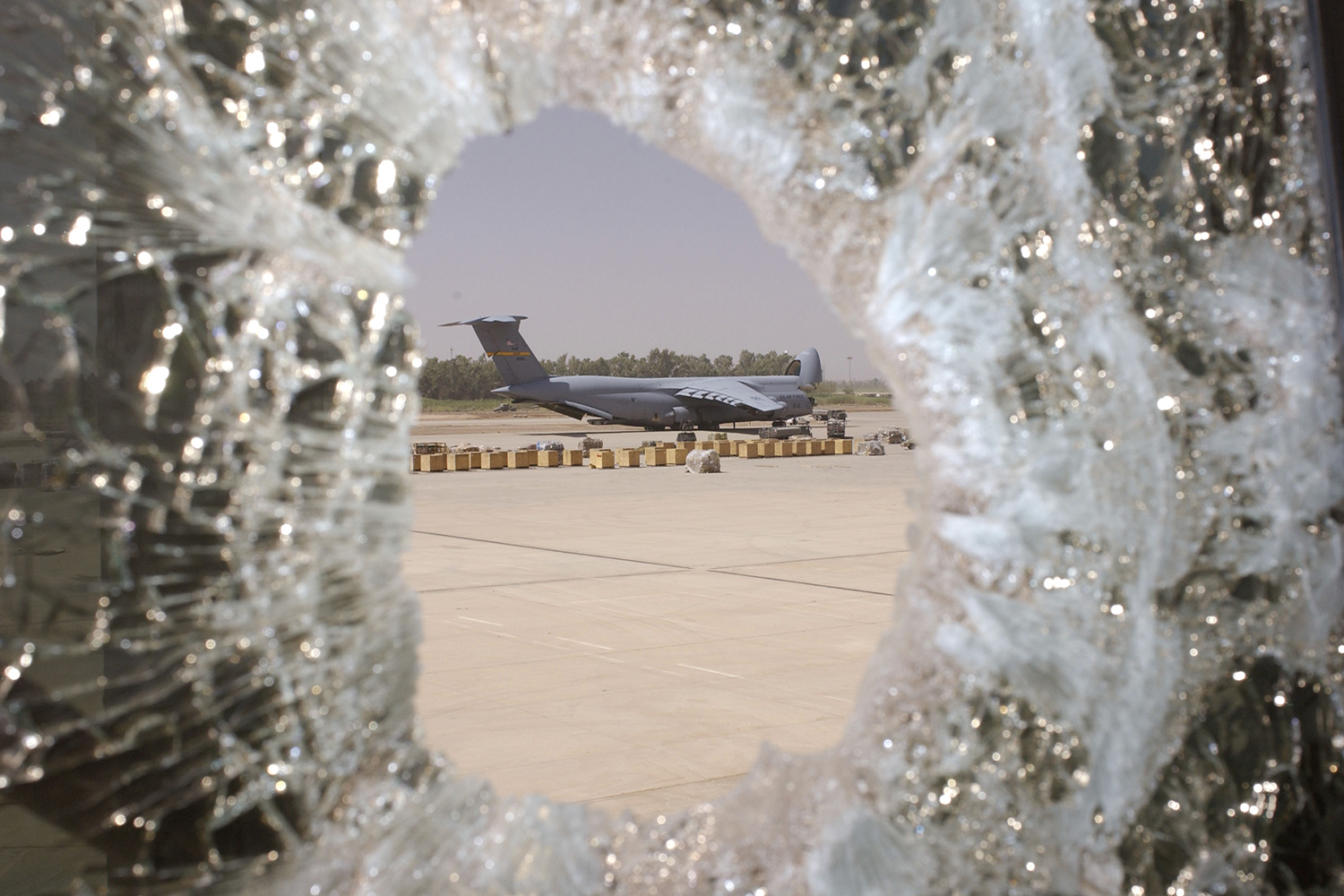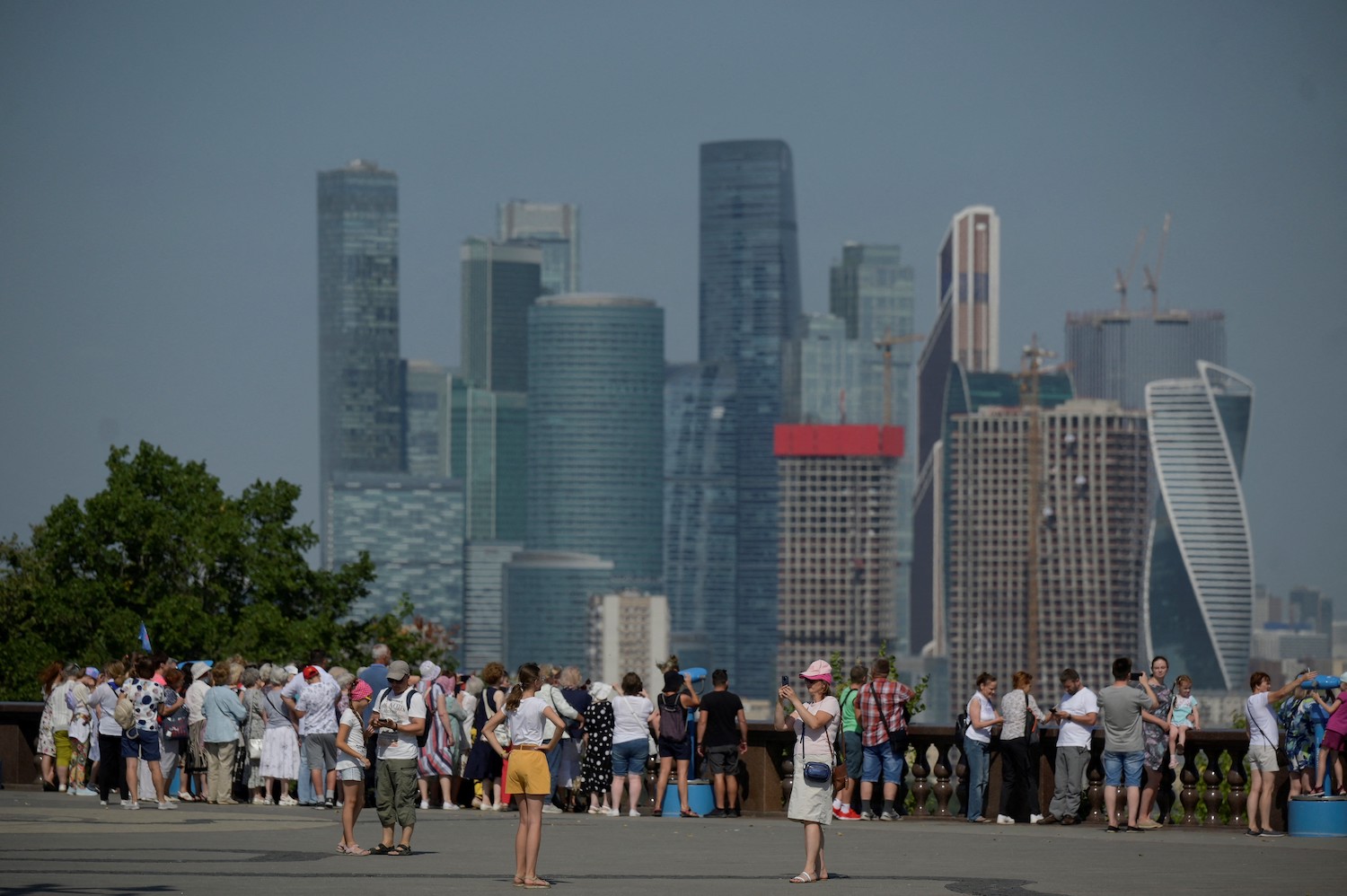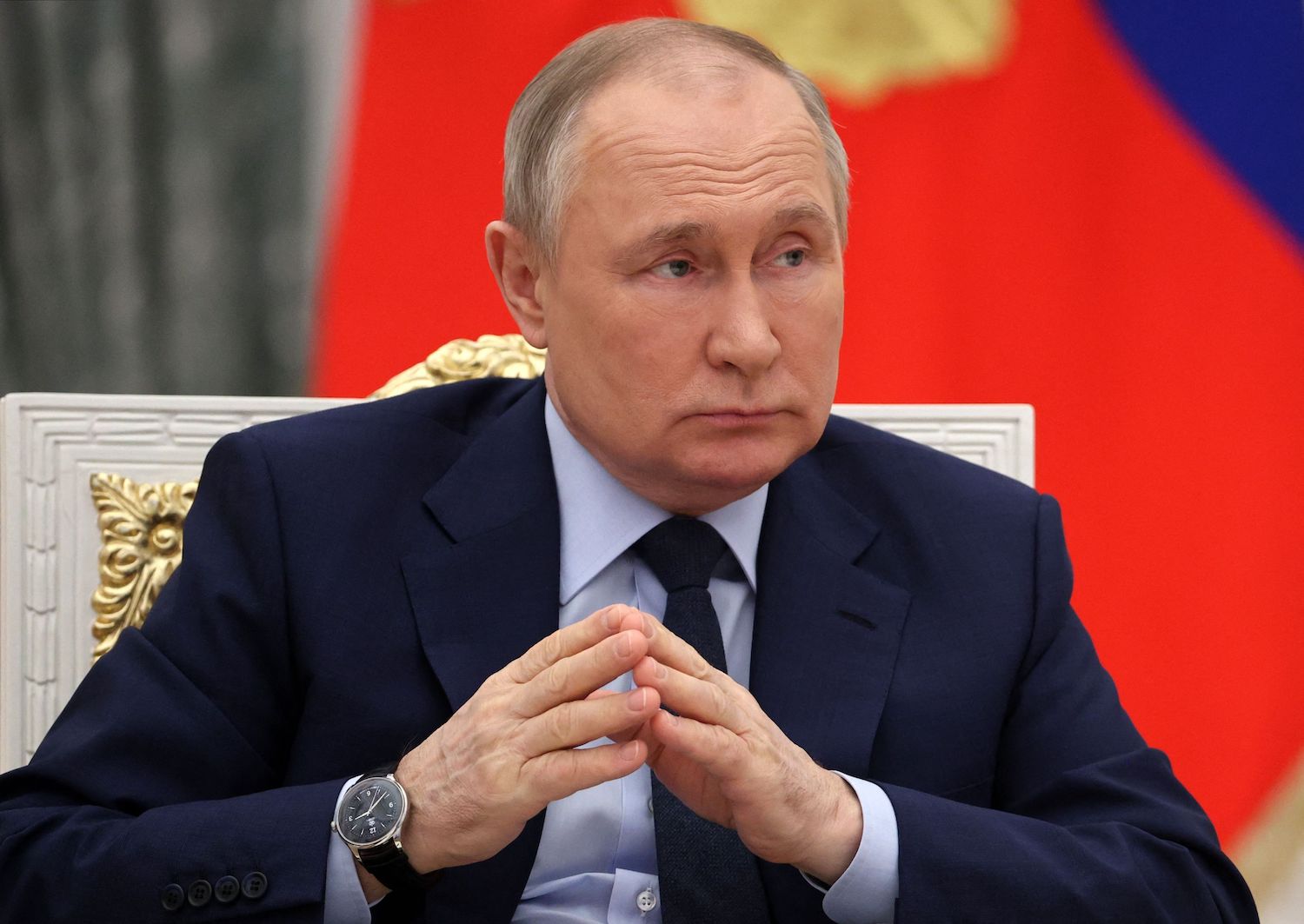
Last week, two experts on sanctions—Agathe Demarais and Nicholas Mulder—debated the effectiveness of U.S. economic pressure on Russia with FP’s Ravi Agrawal. On the one hand, both agreed, U.S. sanctions have weakened the Russian economy; on the other, it’s become clear that they are not a “magic tool.” As the two discussed, assessing whether sanctions are working requires understanding what they were meant to accomplish in the first place.
This edition of Flash Points dives into, and contextualizes, the sanctions debate, exploring the history of Washington’s reliance on sanctions, what their impact on Moscow has been, and how to make sanctions more effective.—Chloe Hadavas
Are U.S. Sanctions on Russia Working?
Two experts debate why the Russian economy has proved relatively resilient with FP’s Ravi Agrawal.
Last week, two experts on sanctions—Agathe Demarais and Nicholas Mulder—debated the effectiveness of U.S. economic pressure on Russia with FP’s Ravi Agrawal. On the one hand, both agreed, U.S. sanctions have weakened the Russian economy; on the other, it’s become clear that they are not a “magic tool.” As the two discussed, assessing whether sanctions are working requires understanding what they were meant to accomplish in the first place.
This edition of Flash Points dives into, and contextualizes, the sanctions debate, exploring the history of Washington’s reliance on sanctions, what their impact on Moscow has been, and how to make sanctions more effective.—Chloe Hadavas
Are U.S. Sanctions on Russia Working?
Two experts debate why the Russian economy has proved relatively resilient with FP’s Ravi Agrawal.
In this photo provided by the U.S. Air Force, a transport plane is framed in a shattered window at the Baghdad airport on June 24, 2003. U.S. President Barack Obama would later turn to sanctions as a form of hard power that avoided the domestic political costs of his predecessor George W. Bush’s military interventions in Iraq and Afghanistan. James M. Bowman/U.S. Air Force/Getty Images
How America Learned to Love (Ineffective) Sanctions
Over the past century, the United States came to rely ever more on economic coercion—with questionable results, Nicholas Mulder writes.
Visitors view the Moscow skyline from the Vorobyovy Hills observation point during a hot summer day in Moscow on Aug. 18.NATALIA KOLESNIKOVA/AFP via Getty Images
Who’s Winning the Sanctions War?
The West has inflicted damage on the Russian economy, but Putin has so far contained those costs, Bruce W. Jentleson writes.
A pedestrian walks past a defaced mural depicting Russian President Vladimir Putin in Belgrade, Serbia, on June 2, 2022.ANDREJ ISAKOVIC/AFP via Getty Images
Sanctions on Russia Are Working. Here’s Why.
The Kremlin’s ability to wage war is already constrained, but the worst is yet to come, Agathe Demarais writes.
Russian President Vladimir Putin holds a meeting at the Kremlin in Moscow on April 20.MIKHAIL TERESHCHENKO/Sputnik/AFP via Getty Images
How to Take Down a Tyrant
Three steps for exerting maximum economic pressure on Putin, according to Jeffrey Sonnenfeld and Steven Tian.










